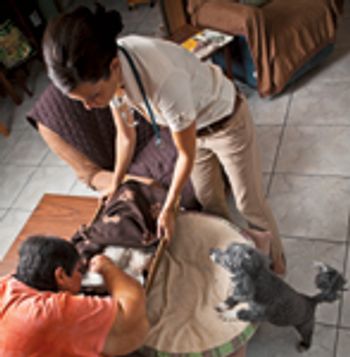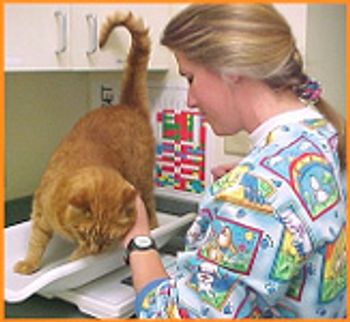
Practices make the most impact on pets health and well-being through preventive services.

Karyn Gavzer, MBA, CVPM, is a veterinary business consultant and widely known writer and speaker. She says her job is to help practices "go and grow" with training, marketing and new ideas. Gavzer has decades of experience in the veterinary industry. She helped create public education campaigns to improve pet health care and encourage owners to take their pets to their veterinarians more often. Gavzer works with practices, associations and industry.

Practices make the most impact on pets health and well-being through preventive services.

Consider this advice to treat your team members as important clients.Telling your team to treat clients well isn't enough. Instead, try to see your team as your most important client. Treat them the way you want them to treat your clients. How well you treat them has a major impact on how well they treat others. Use these three steps to put your team first:

A veterinary practice owner who grew up in a family business learns by doing-and doing, and doing, and doing.

Women have been steadily climbing the veterinary profession's ladder for years, and now they're taking on a new challenge-practice ownership.

Communicating effectively over the phone is just as important as in person. Here's how to make sure your veterinary team does it right.

If the cost of wellness care keeps pet owners away from veterinarians, then prepaid preventive plans may be the answer to bringing them back.

Use these lessons to help turn around your practice and make sure pets get the care they need

Pet hospice is an emerging concept in veterinary medicine.

Q: I've heard that 60 percent of your veterinary practice's referrals should come from clients' word-of-mouth. How has the Internet changed that recommendation? Should we count online recommendations from our clients?

I love my career as a veterinary technician, but I'm no good at reinforcing my veterinarian's recommendations to clients. I feel like a salesperson, and I have no confidence in that role. How can I improve?

In my November 2010 column, I talked about breed-specific wellness plans as an example of a new, better and different healthcare service to offer dogs.

Our practice has Facebook and Twitter profiles, but we're looking for additional marketing opportunities. What should we try next?

Social media website may have the reputation as places to goof off, but they are proving more and more valuable in terms of business.

How can we convert price shoppers into clients?

Breed-specific wellness care could be a powerful addition to your practice curricula.

How can we convert price shoppers into clients?

Questions about price don't mean a customer is cheap; they might just be short on information and understanding.

A case study of how to promote your veterinary practice online by supporting a worthwhile cause.

If you're not tweeting, blogging and visiting Facebook, you're missing out on many opportunties to communicate with clients and educate the public.

Practical advice and resources to jumpstart your veterinary practice journey into the new world of social media

How can we market our services to clients in a low-income area?

Keeping on top of changes can be difficult, but well worth the effort.

If you think that client relationships are built solely on successful diagnoses and treatments, think again! New research from the emerging field of neuroscience is yielding deeper understanding about the way people really think and the dominant role that emotions play in all human interactions, including the ones that play out in your practice.

The program will focus on smart marketing strategies and ideas to help you make careful, considered choices to attract new clients and work better with the ones you already have.

Our practice's Web site needs updating. What goes into a great site?

Our team members aren't salespeople. How can we teach them to reinforce our recommendations to clients?

If the slow economy has put a damper on business, use this time to step back and assess your practice.

The classic, knee-jerk reaction when the economy slows is to cut prices. Look around. Stores are slashing prices.

In tough economic times, stay the course in executing your business plan.

The goal of this program is to help you identify ideas to grow and improve feline health services in your practice. To gain the most from today's program, please complete the exercises below.

Published: July 1st 2010 | Updated:

Published: August 1st 2010 | Updated:

Published: January 1st 2013 | Updated:

Published: September 1st 2012 | Updated:

Published: November 1st 2010 | Updated:

Published: January 1st 2011 | Updated: